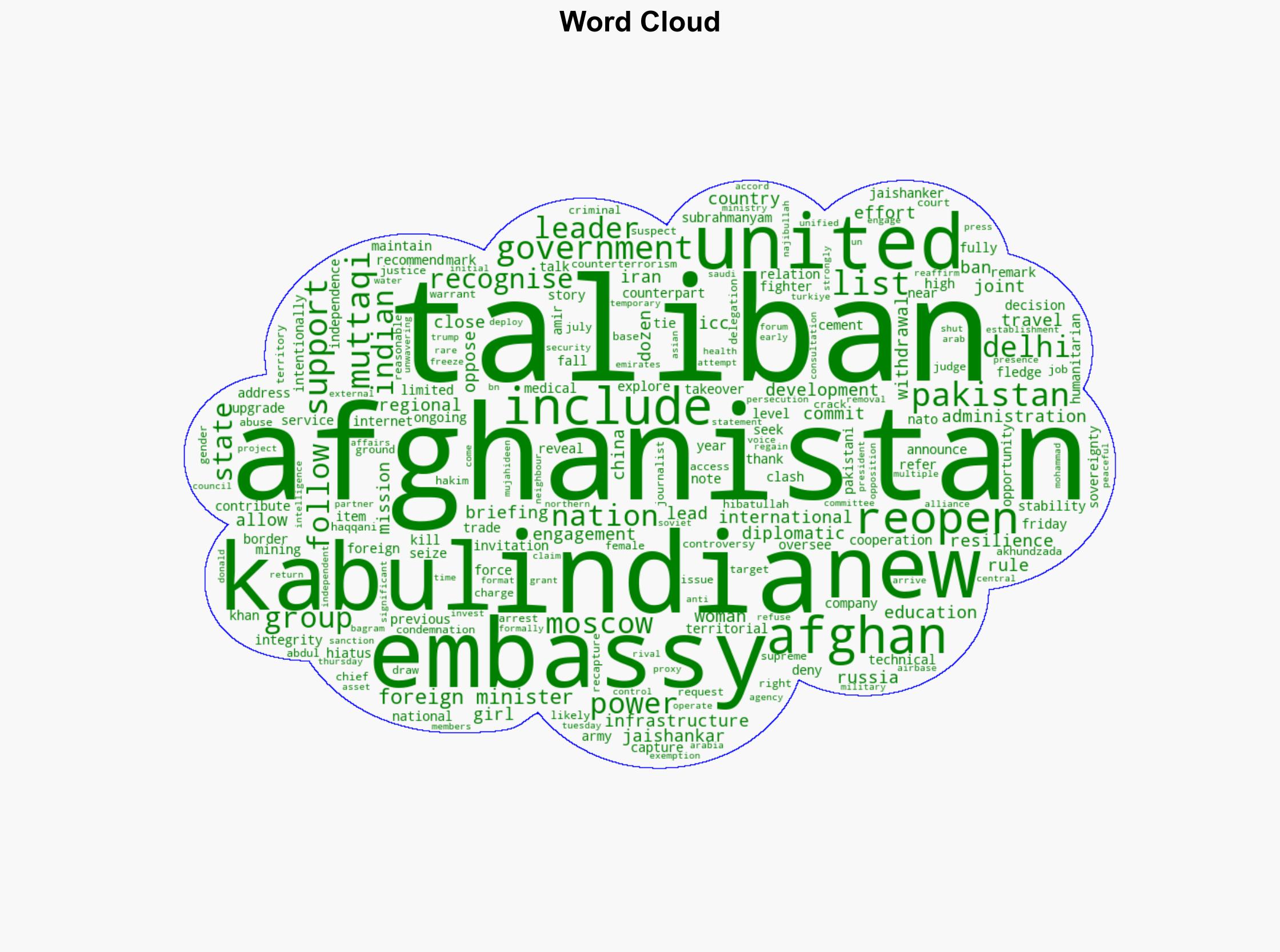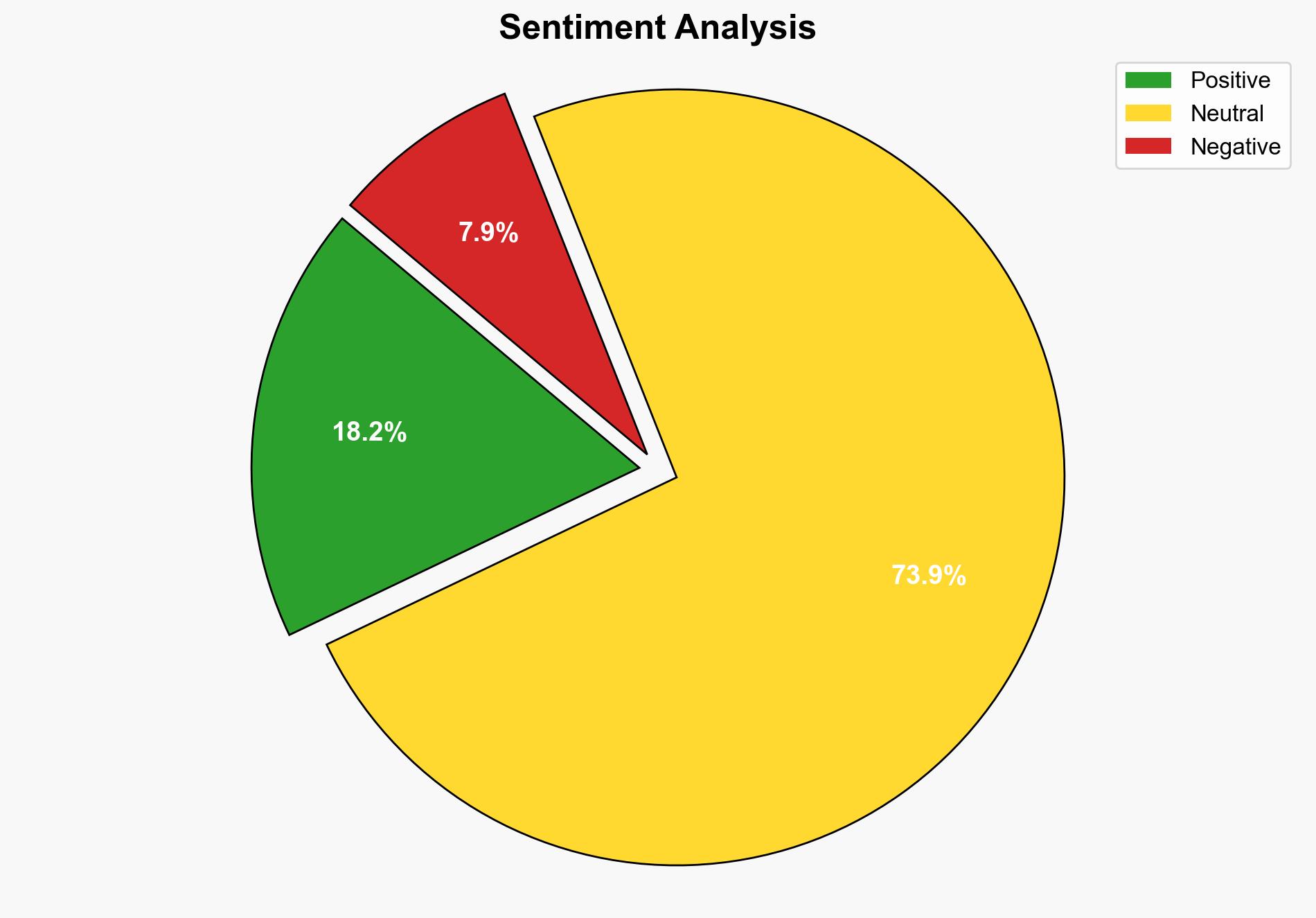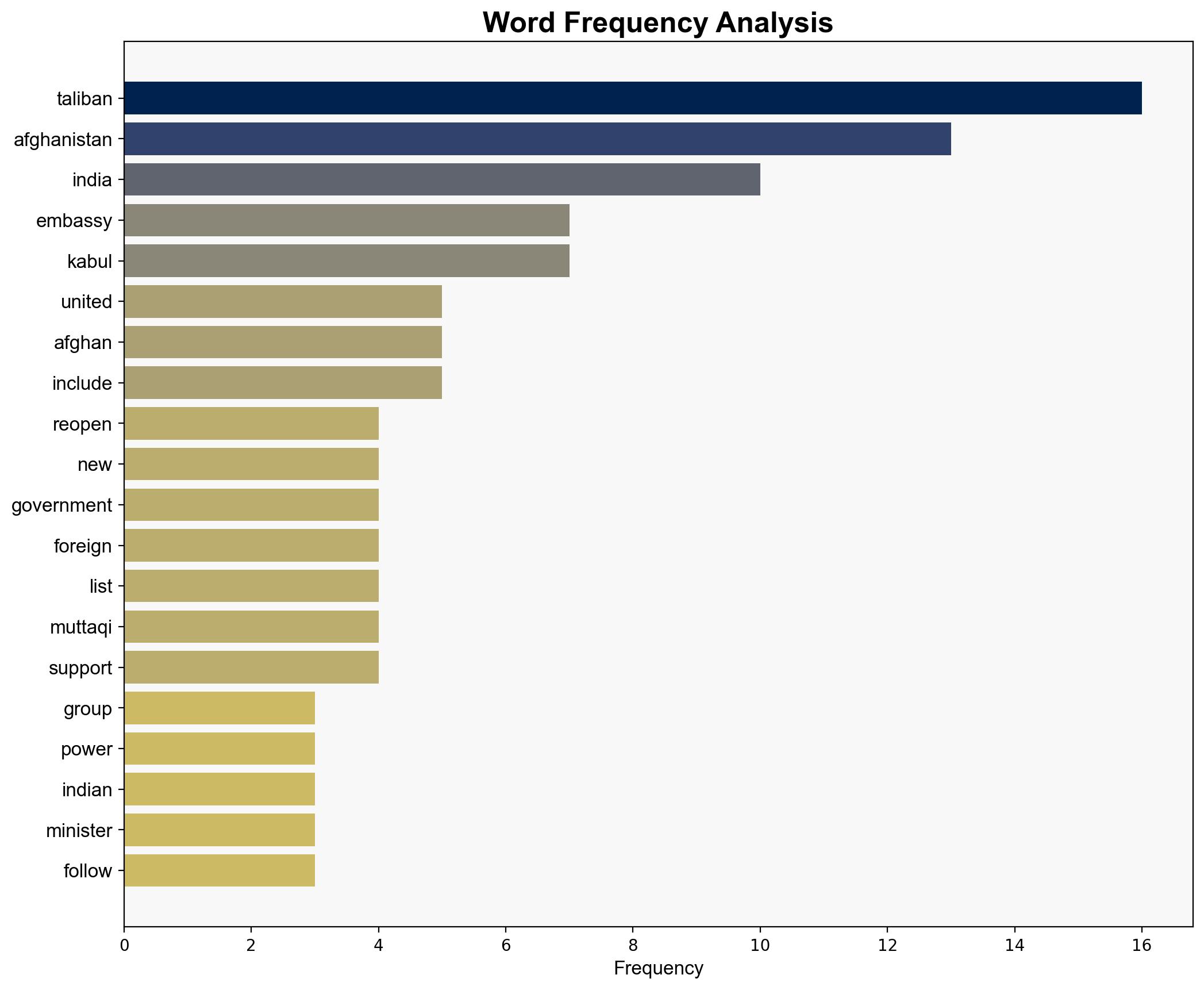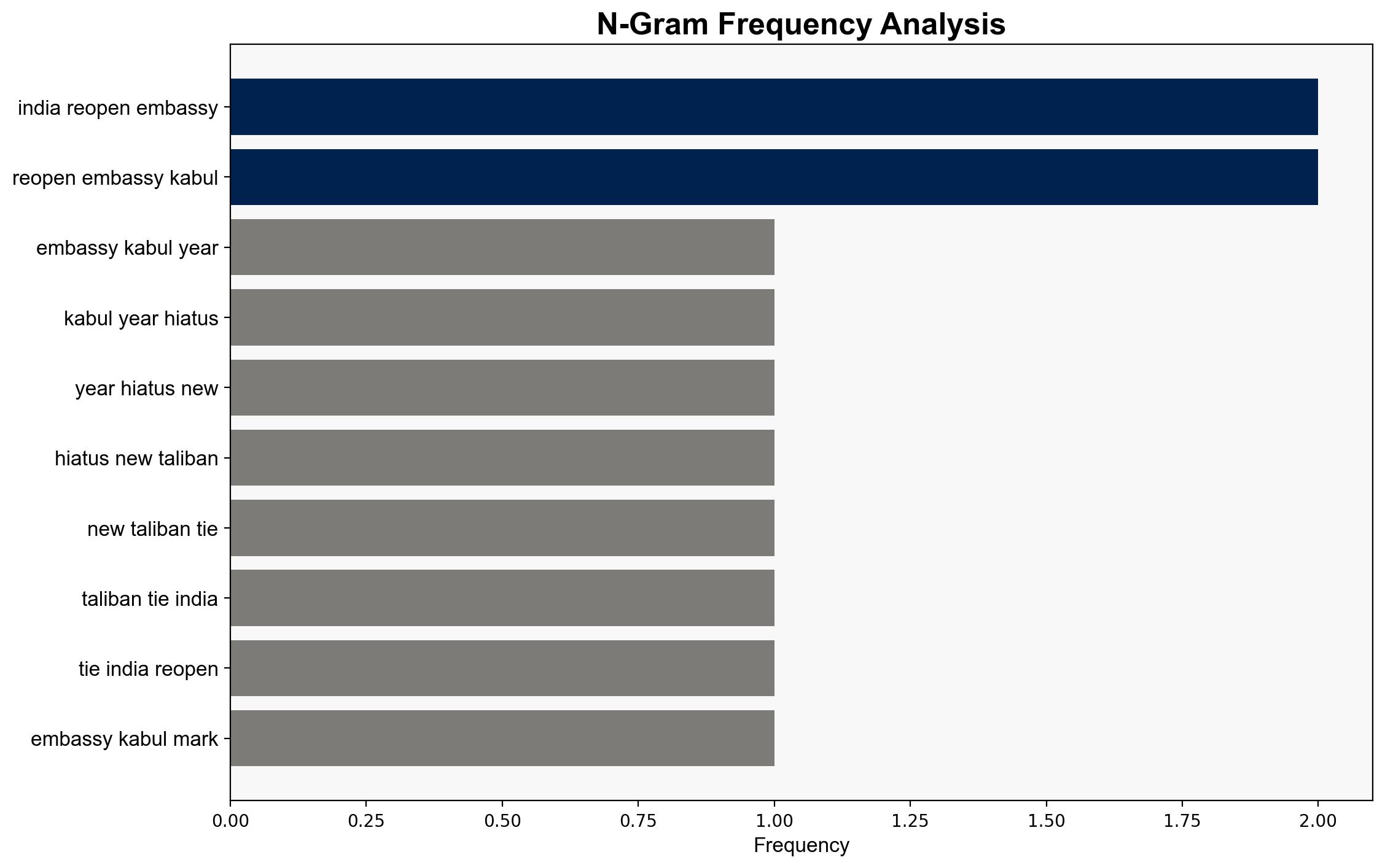India to reopen embassy in Kabul after 4-year hiatus amid new Taliban ties – Al Jazeera English
Published on: 2025-10-10
Intelligence Report: India to reopen embassy in Kabul after 4-year hiatus amid new Taliban ties – Al Jazeera English
1. BLUF (Bottom Line Up Front)
India’s decision to reopen its embassy in Kabul signals a strategic shift towards engaging with the Taliban administration. The most supported hypothesis is that India aims to secure its geopolitical influence and economic interests in Afghanistan, despite potential risks. Confidence level is moderate due to uncertainties regarding Taliban’s governance and regional stability. Recommended action is to closely monitor Taliban’s domestic policies and international engagements to assess potential impacts on India’s strategic interests.
2. Competing Hypotheses
1. **Hypothesis A**: India is reopening its embassy to re-establish diplomatic and economic ties with Afghanistan, aiming to influence the Taliban government and secure regional stability.
2. **Hypothesis B**: India is reopening its embassy primarily to counter Pakistan’s influence in Afghanistan and to safeguard its investments and interests in the region.
Using ACH 2.0, Hypothesis A is better supported due to India’s historical investments in Afghan infrastructure and its stated commitment to Afghanistan’s sovereignty and development. Hypothesis B is plausible but less supported as it assumes a primarily adversarial stance against Pakistan without sufficient evidence of direct confrontation.
3. Key Assumptions and Red Flags
– **Assumptions**: India assumes the Taliban will honor diplomatic norms and allow foreign investments. It also assumes that regional stability can be achieved through engagement rather than isolation.
– **Red Flags**: Taliban’s past behavior and current international condemnation for human rights abuses, especially against women, pose significant risks. The lack of formal international recognition of the Taliban government adds uncertainty.
– **Blind Spots**: Potential over-reliance on diplomatic engagement without contingency plans for rapid deterioration in Taliban’s governance or regional security.
4. Implications and Strategic Risks
– **Economic Risks**: Unstable governance in Afghanistan could jeopardize Indian investments and economic projects.
– **Geopolitical Risks**: India’s engagement with the Taliban may strain relations with Western allies and other regional powers opposed to the Taliban.
– **Security Risks**: Increased Taliban influence could embolden extremist groups, posing counter-terrorism challenges for India.
– **Psychological Risks**: Domestic backlash in India over engaging with a regime accused of human rights violations.
5. Recommendations and Outlook
- Enhance intelligence gathering on Taliban’s internal dynamics and regional alliances.
- Develop contingency plans for rapid embassy evacuation if security deteriorates.
- Engage in multilateral dialogues to align regional strategies and mitigate risks.
- Scenario Projections:
- **Best Case**: Stable diplomatic relations lead to economic growth and regional stability.
- **Worst Case**: Taliban’s governance collapses, leading to regional instability and threats to Indian interests.
- **Most Likely**: Gradual engagement with cautious optimism, with ongoing challenges in security and human rights.
6. Key Individuals and Entities
– Subrahmanyam Jaishankar
– Amir Khan Muttaqi
– Hibatullah Akhundzada
– Abdul Hakim Haqqani
7. Thematic Tags
national security threats, cybersecurity, counter-terrorism, regional focus




